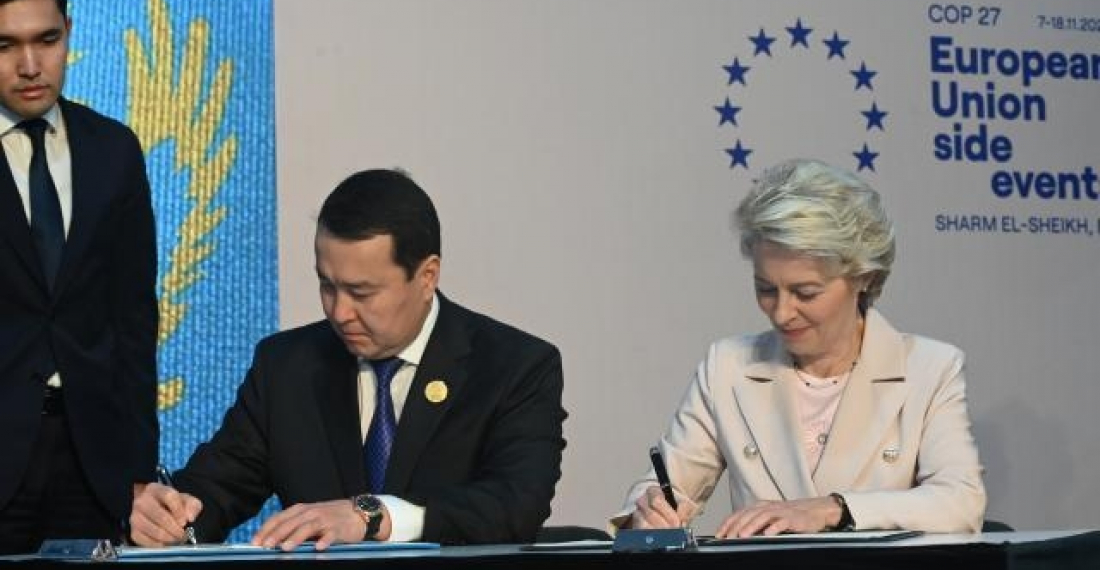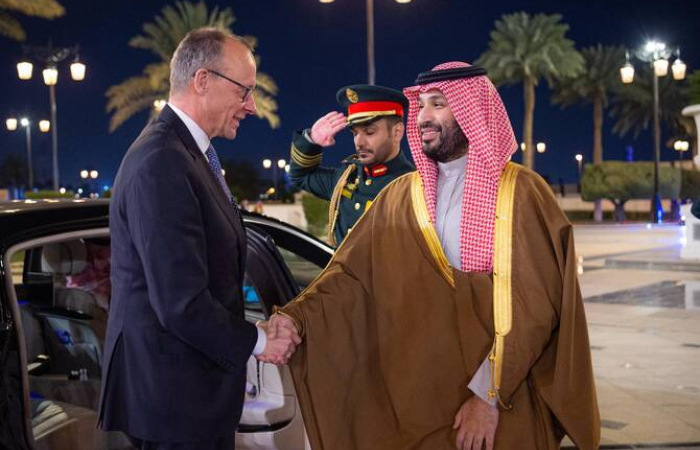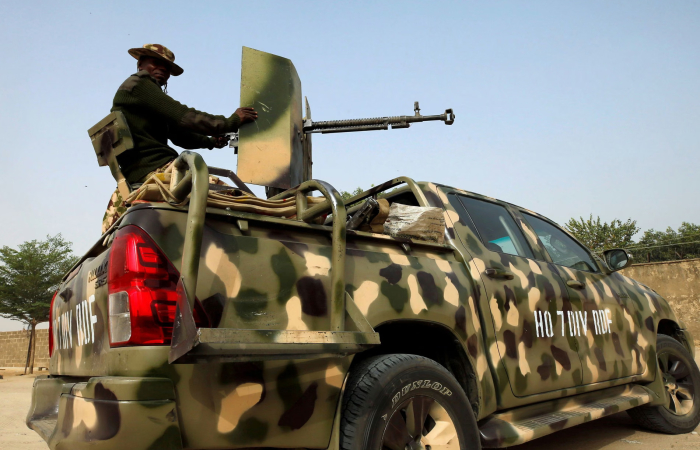The European Union (EU) and Kazakhstan have strengthen their strategic partnership by signing an agreement on raw materials, batteries and renewable hydrogen on Monday (7 November) at a ceremony on the margins of the 27th UN Climate Change Conference of the Parties (COP27), which kicked off in Sharm El-Sheikh, Egypt.
The agreement focuses on the development of a secure and sustainable supply of raw materials and refined materials, renewable hydrogen and battery value chains, and contributes to the green and digital transformation, reported the press service of the European Commission.
Prime Minister Alikhan Smailov, who is representing Kazakhstan at the COP27, said that the document will create conditions for the establishment of financial and technological cooperation between Kazakhstan and EU industrial alliances.
“Our country has all the necessary attractiveness factors for European business, including diversified energy sources and high transit-transport potential. The EU remains one of Kazakhstan’s largest and most significant trade partners, accounting for about 30 percent of the country’s foreign trade. At the same time, today we see significant potential for building investment cooperation and increasing mutual trade”.
EU Commission President Ursula von der Leyen noted the partnership will build a cleaner foundation for both economies.
“This partnership with Kazakhstan shows Europe’s commitment to work with partner countries on our shared commitments to a greener and more resilient future in line with the Global Gateway Strategy and the objectives of the REPowerEU Plan [A plan to rapidly reduce dependence on Russian fossil fuels and fast forward the green transition]”.
EU Commission President von der Leyen added:
To be successful in the long term, MoUs must be rooted in ambitious, long-term partnerships that align well with the values of both parties. The Memorandum of Understanding that we have just signed is exemplary in this respect. First of all, because it emphasises that our cooperation must help align our high environmental, social and governance standards. Second, because it foresees that Kazakhstan and the European Union will for example cooperate on research and innovation, on the formation of skills, or on capacity building. And finally, because this will also attract private capital to these investments, the value chains we are developing together in Kazakhstan will serve the whole world. Because, of course, it is not exclusively for the European Union but it is open to everybody. And these value chains will be much needed worldwide.
Let me conclude by emphasising that today is the first step in our common journey. The real work starts now. We will take stock in six months, by which time we aim to have designed an operational roadmap, in partnership with our Member States, with industry and with the stakeholders.







